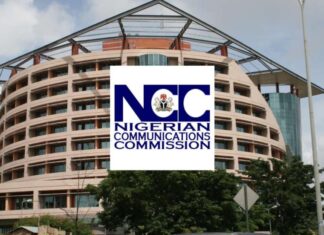The EFCC may have done well in securing conviction for those trifling with the Naira. But leaving the real thieves roam freely, casts doubt on the genuineness of its anti-corruption war
By Emeka Alex Duru
It is becoming clear that the Economic and Financial Crimes Commission (EFCC), is not looking back in its battle against abuse of the national currency, the Naira. Or so it seems! Two quick moves by the commission within the month, indicate that it perhaps, means business in this regard.
On Wednesday, two days ago, EFCC arraigned a businessman and socialite, Pascal Okechukwu, popularly known as Cubana Chief Priest, before a Lagos court on three counts bordering on abuse of naira, by allegedly spraying and tampering with the nation’s currency at a social event.
According to EFCC, Okechukwu had on February 13, 2024, at Eko Hotel, within the jurisdiction of the court, while dancing during a social event, tampered with funds in the denomination of N500 notes, by spraying same for two hours, and thereby committed an offence contrary to and punishable under Section 21(1) of the Central Bank Act 2007.
The commission also alleged that sometime in 2020, during a social event in Lagos, Cubana Chief Priest tampered with funds in the denomination of N500, by spraying the same for two hours.
In Count 3, EFCC alleged: “That you, Okechukwu Pascal, sometime in January 2024, in Lagos during a social event, tampered with funds in the denomination of N500 (Five Hundred Naira) issued by the Central Bank of Nigeria by spraying same and you thereby committed an offence, contrary to and punishable under Section 21(1) of the Central Bank Act 2007.”
READ ALSO:
BREAKING: EFCC declares Yahaya Bello wanted
The EFCC, had on April 5, 2024, secured the conviction of controversial cross-dresser, Idris Okuneye, also known as Bobrisky, on similar charges for which he was sentenced to six-month imprisonment on Friday, April 12, 2024. The judge, Abimbola Awogboro, imposed the sentence after the 31-year-old socialite pleaded guilty to the alleged offences.
Earlier in February, a Federal High Court in Lagos had convicted an actress, Oluwadarasimi Omoseyin, of spraying and stepping on new naira notes at a wedding in Lagos.
Ms. Omoseyin was apprehended on February 1, following the viral circulation of a video clip showing her spraying new Naira notes at a wedding in Lekki, Lagos State, on January 28.
On February 2, the trial judge, Chukwujekwu Aneke, sentenced Ms. Omoseyin to six months imprisonment, but with the option of a N300,000 fine.
Many celebrities, according to the EFCC, are facing investigations and will soon be prosecuted for Naira abuse. We must commend the commission for waging the battle against abuse of the Naira.
A country’s currency is its legal tender; its store of value, unit of account, and medium of exchange. It is a major tool in transactions by its nationals and residents. In the absence of money, the transactions would become inefficient, and the economy will not be able to produce. By extension, the currency counts among the indexes of national security of a country. How a country treats its currency goes a long way in determining how others see it and its citizens.
Over time, the Naira has been an object of abuse by Nigerians, especially of low value and fleeting identities. Careless spraying of the Naira or even trampling on it, has become an easy path for upstarts to announce their arrival in social circles. If proper analysis is done on the rising incidences of kidnapping, cyber fraud and the get-quick tendencies among the youths, flaunting of the Naira at public functions, will have some blame in the odious acts.
The desire to be celebrated, has led many into crimes. It is near impossible for anyone who had struggled and toyed to make his or her money to flaunt or spray it in meaningless fashion. Every effort at safeguarding the value and essence of the Naira, should therefore be lauded.
But then, there is the greater task ahead for the EFCC. That is the real war against graft and other acts of corruption. Incidentally, that was even why the commission was established. Established under the Economic And Financial Crimes Commission (Establishment) Act, 2004, EFCC has among other functions the investigation of all financial crimes including the advance fee fraud, money laundering, counterfeiting, illegal charge transfers, futures market fraud, fraudulent encashment of negotiable instruments, computer credit fraud and contract scam.
It is also empowered to examine and investigate all reported cases of economic and financial crimes with a view to identifying individuals, corporate bodies or groups involved. It can also identify, trace, freeze, confiscate or seize proceeds derived from terrorist activities, economic and financial crime related offences or the properties the value of which corresponds to such proceeds.
Given the initial success of the Commission in reining in advance fee criminals and scammers, it was generally seen as a bold move in tackling crime and other misdemeanors that had dented the nation’s image locally and abroad.
With time however, especially, due to the closeness of the leadership of the organisation to successive administrations and the willingness to be used in executing vindictive wars of any seating president, EFCC gradually began to be seen as an instrument of blackmail and intimidation by the government. The agency began to lose steam.
The result is that Nigeria is still rated among the countries with high level of corruption. By the 2023 Corruption Perception Index (CPI) released by Transparency International (TI) in January this year, Nigeria ranked 145 among 180 countries surveyed. The EFCC had on its own, in 2015, admitted that about $20 trillion had been stolen from the national treasury by leaders who had access to the nation’s money between 1960 and 2005. That figure must have been exceeded over time.
Some of the perpetrators of the heinous acts against the country and their cronies are still in the government houses at state or federal level or other agencies. The opacity and dirty deals in the oils sector, also portray Nigeria as a country that is neck-deep in corruption.
It is therefore not enough for the EFCC to go about raking in petty thieves, internet fraudsters or those abusing the Naira at social functions, while leaving out the brains behind huge crimes. For the anti-corruption war to have meaning and be convincing, it must be comprehensive and encompassing.
The EFCC may have done well in securing conviction for those trifling with the Naira. But leaving the real thieves roam freely, casts doubt on the genuineness of its anti-corruption war.













